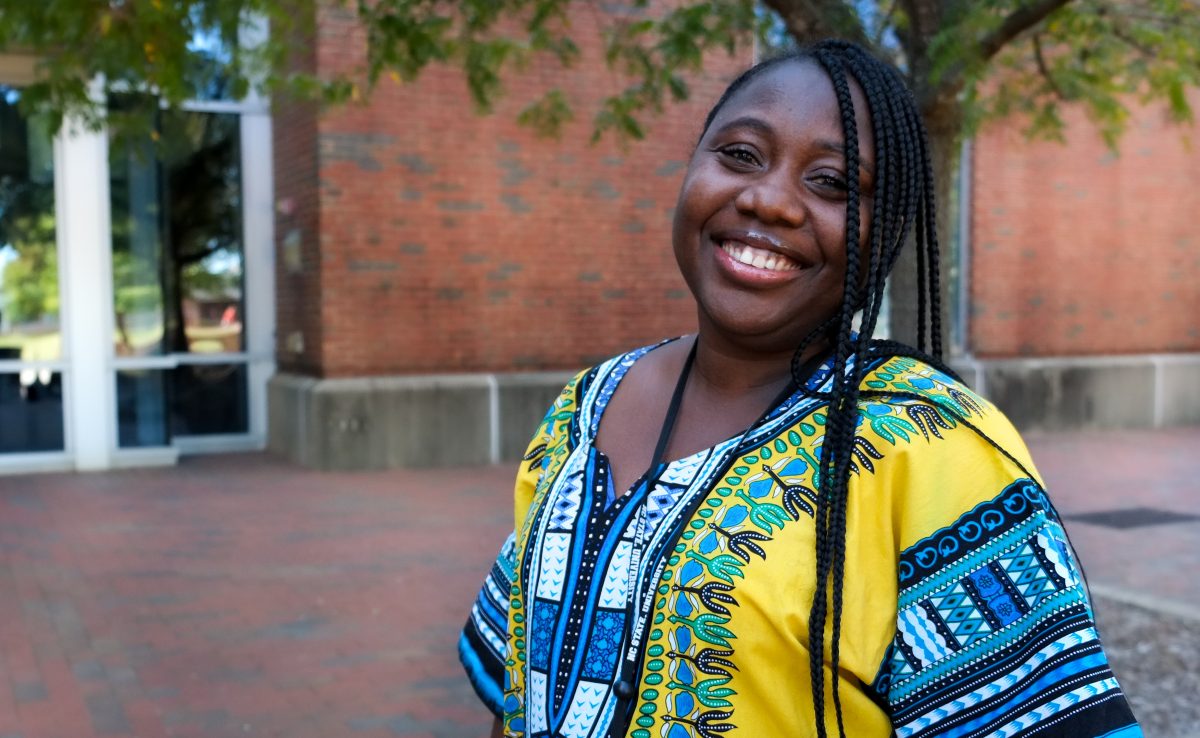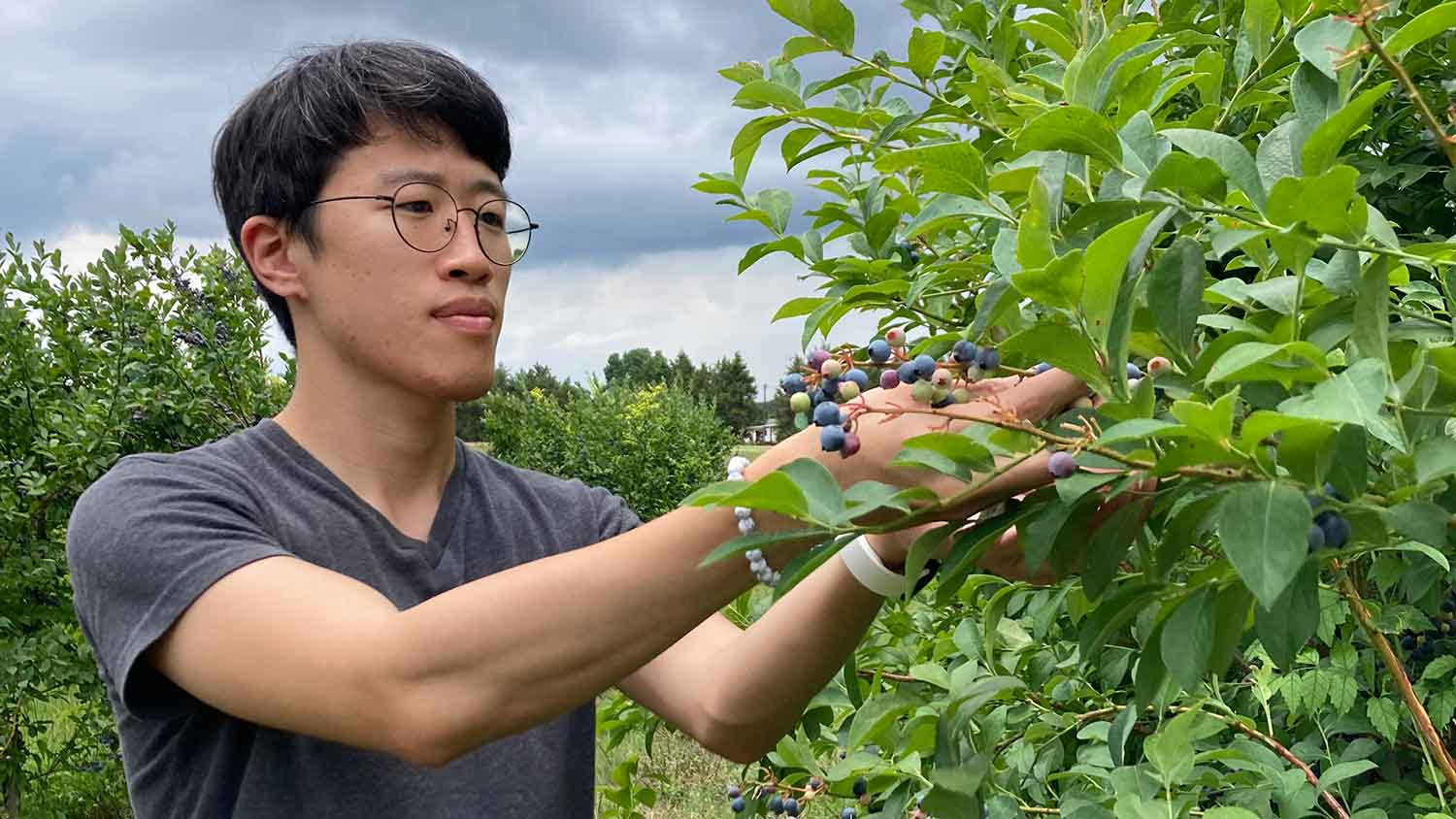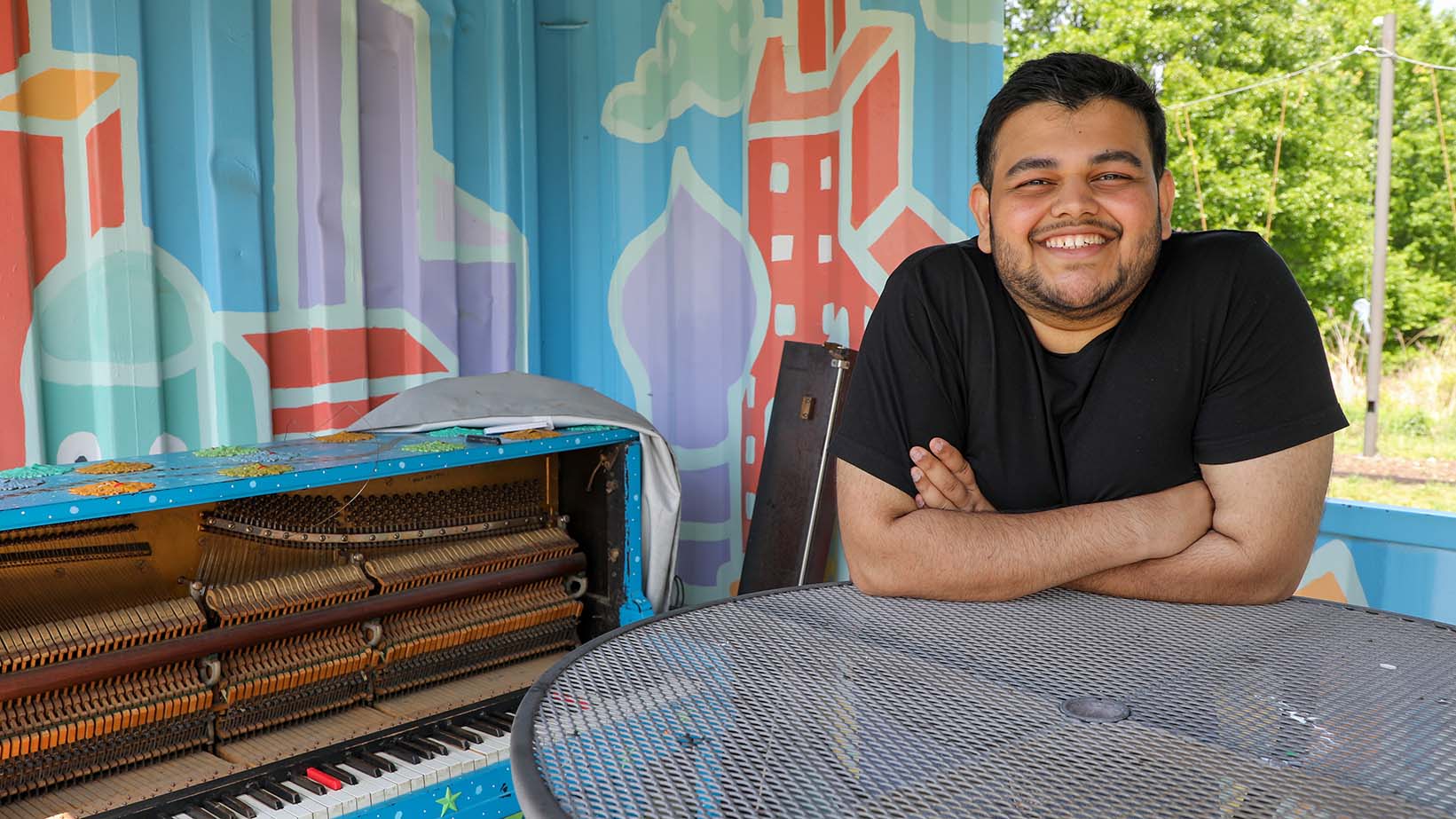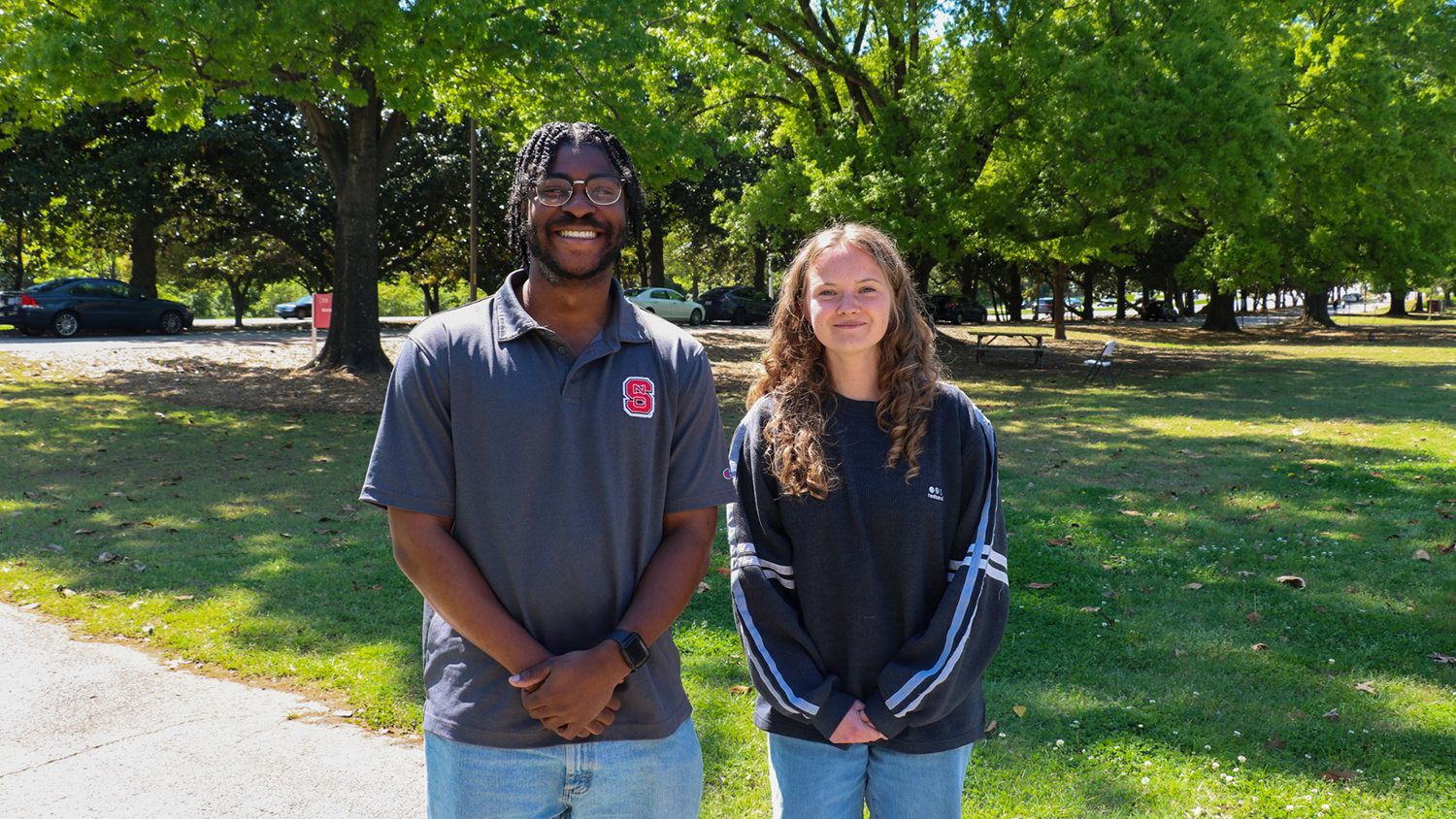Five Questions with a Visiting Ph.D. Student from Nigeria

Mabel Aworh is a Ph.D. student at Ahmadu Bello University in Zaria, Nigeria. She is also an assistant director in Nigeria’s Federal Ministry of Agriculture and Rural Development and country lead for the Codex Intergovernmental Task Force on Antimicrobial Resistance.
In September, she arrived at the NC State College of Veterinary Medicine to train with Sid Thakur, CVM professor of molecular epidemiology and director of the college’s global health program. Under Thakur’s mentorship, Aworh is learning research techniques to combat drug resistant pathogens and implement a national antimicrobial resistance surveillance program in Nigeria’s animal health sector. Most recently, she won best oral presentation at the 10th TEPHINET Global Scientific Conference for her Ph.D. research.
What led you to study antimicrobial resistance in Nigeria?
In 2015, after the governing body of the World Health Organization endorsed a global action plan to tackle antimicrobial resistance, countries were tasked with developing their own national action plans. To get started, my country did a situation analysis to find out what we knew about antimicrobial resistance in Nigeria. As a government veterinarian, I reviewed previous studies to identify knowledge gaps and found that we need more information about the animal health sector, especially the transfer of resistance genes from animals to humans and the environment. I decided to do a Ph.D. to fill this knowledge gap because this will guide implementation of Nigeria’s national action plan and help develop effective policies to protect against antimicrobial resistance.
Which sectors are a key concern for antimicrobial resistance in Nigeria?
Food animals like poultry are a major concern because they are exposed to lots of antimicrobials for different reasons. For example, when farmers are caring for day-old chicks, they are scared because the chicks are fragile and they don’t want to lose their investment. So, from the very beginning the birds are exposed to a lot of prophylaxis medication. Antimicrobials are also used for therapeutic purposes if the birds get sick, or as growth-promoters. Access to these medicines is not restricted, so farmers can purchase these drugs without a prescription to do what is necessary to guard their investment.
What is the focus of your research?
For my Ph.D., I am investigating whether antimicrobial resistance is spreading from chickens to poultry workers and the environment. I’m collecting samples from chickens, poultry workers and poultry farms, and isolating E. coli to determine whether these bacteria express antimicrobial-resistance genes. If I find the same resistance genes in the workers as I do in the chickens and their environment, this indicates that the chickens are spreading drug-resistant bacteria. I’m studying E. coli because it is an indicator organism and part of the normal flora, so if these bacteria are carrying resistance genes we will have some idea about the magnitude of the problem.
How did you get in touch with Dr. Thakur?
I am Nigeria’s representative on the Codex Committee on Residues of Veterinary Drugs in Foods, and when I attended the last meeting in 2018, I asked representatives from the U.S. Department of Agriculture whether they could recommend an expert to supervise my Ph.D. research. They told me to contact Dr. Thakur, so I reached out to him. From the start of my Ph.D., Dr. Thakur has overseen my research with my other two supervisors at Ahmadu Bello University who are veterinary public health professors specializing in molecular epidemiology and bacterial zoonoses.
How will your training at the CVM help you with your future work?
I’m learning new things like whole genome sequencing, antimicrobial susceptibility testing and bioinformatics – things that I’ve previously only read about in books or watched videos about on YouTube. After I finish my training at the CVM, I will return to Nigeria to finish my Ph.D. and share my findings with the technical working group for the national action plan. I will then travel to Denmark for additional training because my government received a Fleming Fund country grant to build capacity for antimicrobial resistance surveillance in Nigeria. This fund provides training for key people who can help build the country’s surveillance system, and my training at the CVM will help me be part of this. It will also help me pursue my goal of working in academic research and teaching students so I can help build capacity for antimicrobial resistance research in Nigeria.
This post was originally published in CVM Global Health Program.
- Categories:


